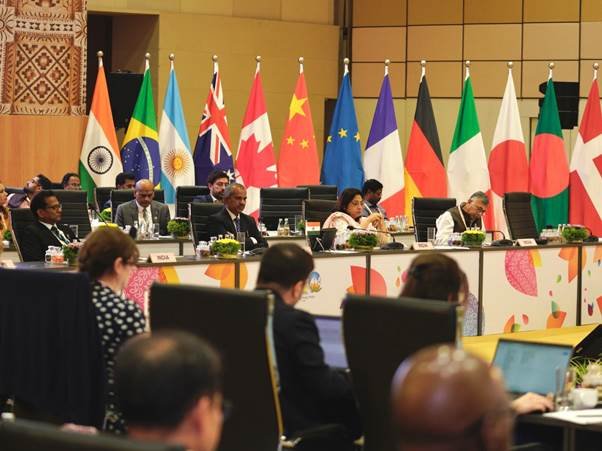Saturday, 21 February 2026

The G20 member countries reaffirmed their commitment towards combatting the environment and climate crisis, but with a renewed sense of urgency
The Second G20 Environment and Climate Sustainability Working Group (ECSWG) meeting concluded in Gandhinagar with shared views and accordance on outcomes of the priority areas. Building on the discussions from the first ESCWG, constructive deliberations among the G20 countries took place on Arresting Land Degradation, Accelerating Ecosystem Restoration Enriching Biodiversity; Promoting a Sustainable and Climate Resilient Blue Economy and Encouraging Resource Efficiency and Circular Economy. The G20 member countries reaffirmed their commitment towards combatting the environment and climate crisis, but with a renewed sense of urgency. All the G20 countries agreed on the pressing need for concerted global efforts and the immediate action required, given the current scenario. After technical sessions delving deep into the outcomes of the three priority areas identified by ECSWG under the India Presidency, the countries highlighted several action points on how to bring about a meaningful change.
The key inputs collated from deliberations over the 1st ECSWG, focused group discussions and the written inputs shared by the member countries were the highlight of the session on Biodiversity, Land degradation and ecosystem restoration during the pre-lunch session of the second day. The session witnessed engaging deliberations among the delegates on the two priority landscapes identified under India’s Presidency and presentations on the proposed Gandhinagar Implementation Roadmap (GIR) and draft publications on a compendium of best practices by experts from the United Nations Convention to Combat Desertification (UNCCD) and Indian Council of Forestry Research and Education (ICFRE).